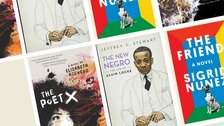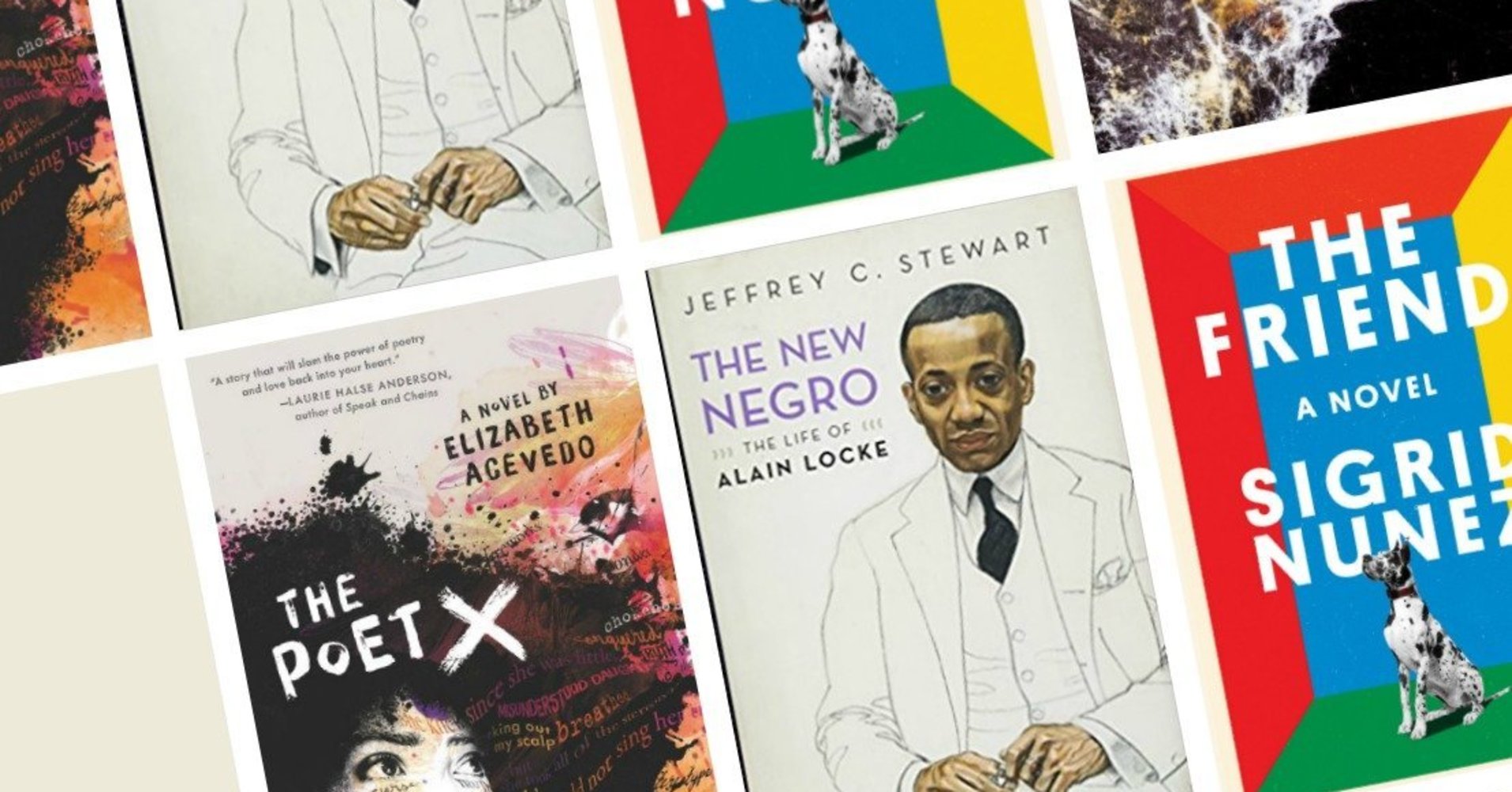[ad_1]

Novelist Sigrid Nunez and poet Justin Phillip Reed were among those who took home top honors at Wednesday night’s National Book Award gala in New York, which recognized the best in fiction, nonfiction, poetry, translated literature and young people’s literature.
The evening was often emotional, touching on contemporary political and humanitarian issues, but there were also plenty of laughs.
Emcee Nick Offerman kicked off the 69th annual awards by emphasizing that he would not, despite hints from National Book Foundation executive director Lisa Lucas, “make merry” with the bawdy anniversary number this year.
This was, of course, just after he announced that, because “a picture is worth a thousand words,” he and his wife, Megan Mullally, had prepared a slideshow of “Tantric grapple maneuvers” in lieu of a speech, only to be foiled at the last minute by technical difficulties. “The young woman,” he joked, “had the temerity to tell me it was an equipment issue, because all I had was a floppy disk.”
Offerman had some serious bookish thoughts as well, remembering a time in elementary school when he learned about mitochondria from a Madeleine L’Engle novel and came to see books as repositories of secret knowledge. “Which meant that if I kept reading the right books, I’d come to know special things. This is a superpower available to anyone with access to the library that allows the human race to trudge ever forward in our journey toward enlightenment, and orgasms, and fine woodworking.”
Wednesday night marked the first time in decades the National Book Awards included a category for translated literature, and Offerman was one of several to extol the value of cross-cultural storytelling during the ceremony. Though, to be sure, his message was the most blunt: “Suck on that, Muslim ban.”
Below are the winners in each of the National Book Award’s five categories.
Young People’s Literature
The Poet X by Elizabeth Acevedo (HarperTeen)
Translated Literature
The Emissary by Yoko Tawada, translated by Margaret Mitsutani (New Directions)
Poetry
Indecency by Justin Phillip Reed (Coffee House)
Nonfiction
The New Negro: The Life of Alain Locke by Jeffrey C. Stewart (Oxford University Press)
Fiction
The Friend by Sigrid Nunez (Riverhead)
Two lifetime achievement honors were also awarded Wednesday night.
Hidden Figures author Margot Lee Shetterly presented Doron Weber with the Literarian Award for Outstanding Service to the American Literary Community. Weber is the vice president and program director for the Alfred P. Sloan Foundation, where he runs the program for Public Understanding of Science, Technology & Economics, which supports projects that bridge science and the arts ― including Shetterly’s bestselling book on the unsung black women who did crucial mathematical work at NASA in the mid-20th century.
Acclaimed writer Luís Alberto Urrea presented the Medal for Distinguished Contribution to American Letters to Isabel Allende ― a fitting honoree for the first National Book Awards to include a Translated Literature category since the 1970s.
“Isabel is calling us to believe in words of love, words of witness,” Urrea said. “You can’t build a wall to keep them out. You can’t lock them up. She has taught us that words have wings. They fly over barriers, and they sing all over the globe.”
The Chilean-American author, who writes in Spanish, has been widely read internationally since her 1982 debut novel, The House of the Spirits. Born in Peru, raised in Chile, she has now lived in the U.S. for over 30 years, and she spoke movingly of the specific sorrows and gifts of being rootless.
“I have always been a foreigner,” she said. “Most of my writing comes from nostalgia, loss and separation, from an incurable desire to belong in a place.”
“It is a time of war in many places and potential war everywhere. A time of nationalism and racism, of cruelty and fanaticism,” Allende said, pointing out how acute the suffering of many fleeing war and disaster around the world has grown, and how quickly the most shocking tragedies are forgotten.
Immigrants and refugees, she noted, have a particular need for stories. “For those without roots in a place, memory is essential to maintain a sense of continuity. No one witnesses the length of our lives. We need to remember.”
For her part, Allende concluded, a National Book Award made her feel she may truly be able to root herself somewhere. “Maybe I have found a place where I can belong. Maybe I’m not going anywhere anymore.”
[ad_2]
Source link

